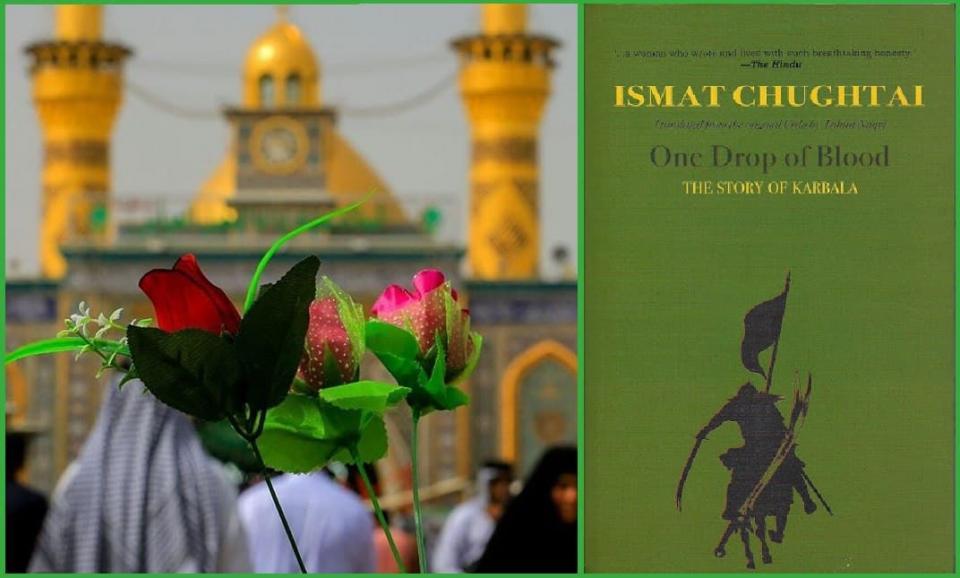Thecitizen.in has published an article by journalist and author
"Mehru Jaffer" evaluating one of the best books about the tragedy of Karbala.
"My reaction was good for him, after I had seen the video once." Jaffer said, "I went back to my work that includes a reading of Ek Qatra Khoon, a 1976 Urdu novel by Ismat Chughtai which is the story of Karbala."
"Now my thoughts are mixed up between Shah, Chughtai, Indian Muslim, viral videos and images of Mir Anis, Lucknow’s greatest marsiyago or elegy writer and narrator flitting in and out of my mind," he added.
Chughtai was a communist and an active member of the Progressive Writer’s Association. She spent her entire youth being bold and brave, writing about female sexuality and the inner world of women. However in 1972 at the age of 61 years, when she wrote Ek Qatra Khoon, her last novel nearly 400 page long and based on the marsiya of Mir Anis, no publisher wanted to touch the manuscript. Her friends and colleagues too thought that the communist, progressive Chughtai had gone mad in her old age. That the firebrand atheist was crazy to be writing about religion. Eventually the book was published but remains the most under-read of all her works.
In the preface to the book that is translated into English by Tahira Naqvi and published in 2019 with the title A Drop of Blood, Chughtai writes that Karbala is the story of seventy two people who took a stand against imperialism in order to defend human rights. She calls the 1,400 year old story today’s story because man is still man’s greatest enemy. For today too the standard bearer of humanity is man. Today too when a Yazid raises its head in some part of the world Husain steps forward and crushes him. Even today light wins against darkness.
The theme of the book is Karbala, where a battle took place in 680 in present day Iraq in which the small army of Imam Husain, the grandson of Prophet Muhammad the Prophet of Islam clashes with the mighty forces of Yazid, the reigning leader of Muslims. Karbala is not just religion. It is history, it is an idea, it is a way of life.
What was drilled into us instead is that religion and the relationship of every individual with their creator is a personal and private matter. What mattered more was the practice of morality and ethics, not how one chose to connect with the creator of the world.

